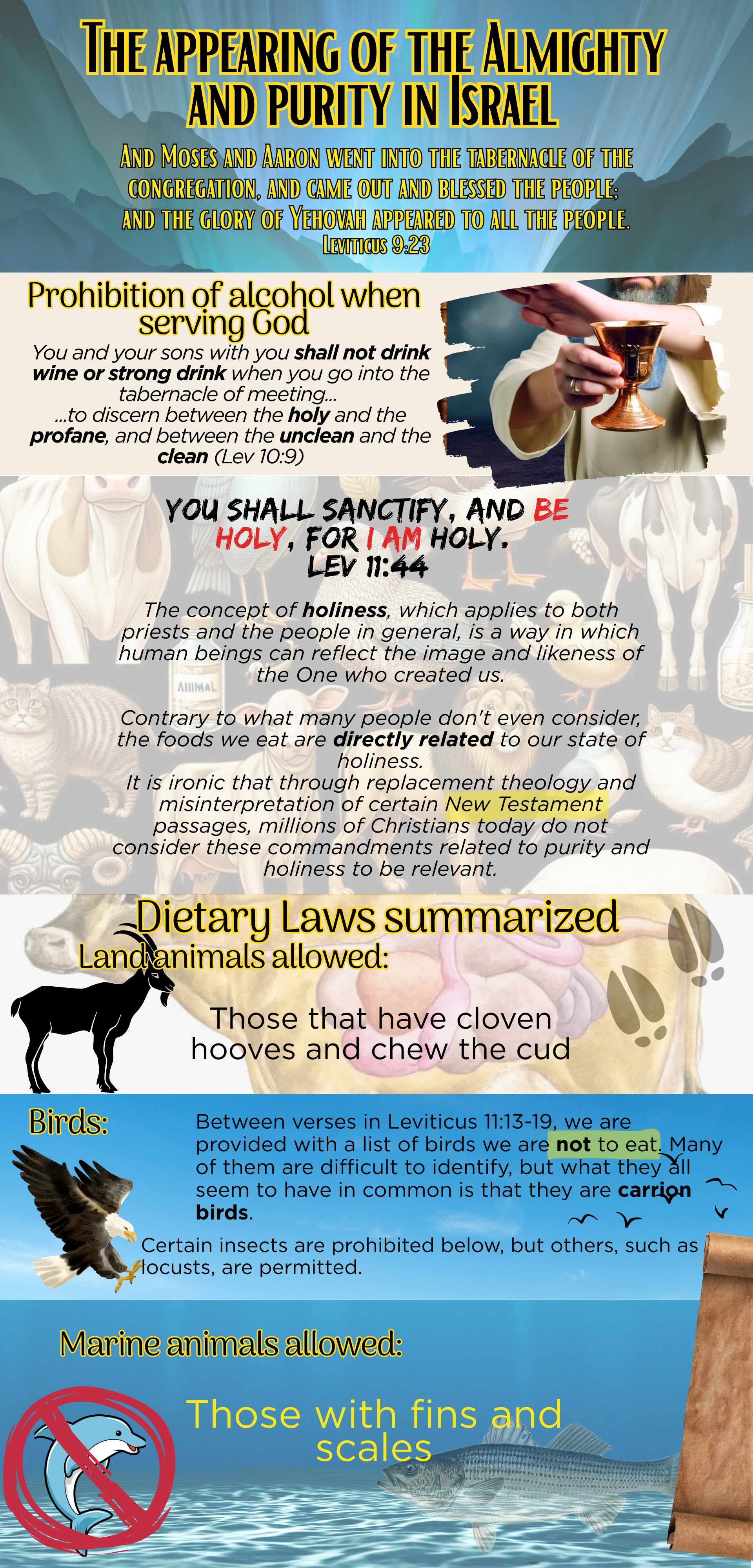The name of this parashah means “eighth,” and refers to the “day after” Aaron and his sons completed the seven-day inauguration process of their priesthood… Interesting that this eighth day is mentioned, isn’t it? We always associate the seven-day cycle with the biblical worldview, but the number eight also has a special role.
Perhaps the most prominent appearance is that of the “eighth day,” after the seven days of Sukkot, which undoubtedly has an interesting parallel with the priestly consecration. Another instance is that of brit milah (circumcision), which is performed on the eighth day of life for every male in Israel, symbolizing entry into the covenant of Abraham. In light of these instances, we can gain a deeper understanding of the meaning of this parashah’s name.
Other important events include the death of two of Aaron’s sons for offering “strange fire,” additional purity laws for priests, and the official list distinguishing between clean and unclean animals.

Both the laws established for priests, who were required to have a higher standard of holiness, and the simple laws directed to all the people (such as dietary laws), constitute specific parameters established by the Creator regarding what purity and holiness mean to Him.
In times when multiple churches and denominations establish subjective parameters of holiness according to the time and geography in which they develop, it is essential to learn those commandments that the Messiah Himself confirmed to us; they will not pass away until heaven and earth pass away.